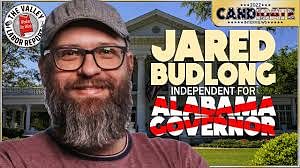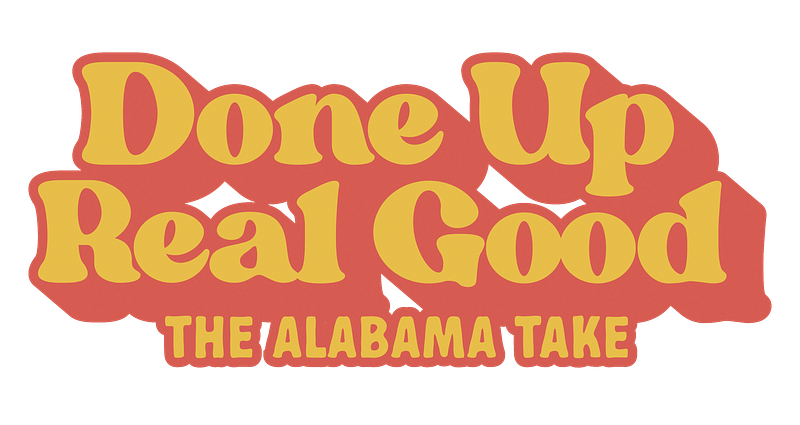
November 8 is shaping up to be a historic election in Alabama. For the first time, both major party candidates are women. The Democratic nominee, Yolanda Flowers, is Alabama’s first Black major party nominee for governor. These are inspiring firsts, but are the candidates themselves inspiring enough to lift Alabama above the 50 percent voter turnout rate from the last gubernatorial election?
Governor Kay Ivey, only the second woman to serve as governor of Alabama, has been a mostly predictable Republican Alabama governor. To her credit, she was a welcome change from her predecessor, Robert Bentley, whose personal failings were foisted upon all of us without our consent. A grandmotherly figure with an accent like Golden Eagle syrup and a penchant for purse pistols is at least a step above the live-action version of Mr. Burns.
As for her opponent, I initially had a lot of trouble finding information about Flowers, or really any of her primary opponents besides Malika Sanders-Fortier, who has at least some web presence due to her position as Alabama State Senator. Flowers has more of a social media presence now than she did during the primaries, but I still don’t quite feel like I know what she’s about. Flowers has embraced a more progressive platform than she initially introduced, but some of the first comments I saw from Flowers regarding education and reproductive justice were a bit alarming to me as an educator with reproductive ability.
I am generally not a third party kind of gal, but when the all-seeing, all-knowing TikTok algorithm introduced me to write-in candidate Jared Budlong, I figured I’d listen to see what he had to say. Budlong uses his social media platforms to discuss state issues, interview experts in different fields, and give voice to like-minded candidates in other races as well as organizations like the Bay Minette Justice League.
Budlong was kind enough to answer a few questions about himself and his campaign during his commute. He spent part of his childhood in Fort Lauderdale, Florida, but has mostly lived in the Mobile area. He spent about six years in the Birmingham Metro area where he met the woman who would become his wife. While visiting Budlong’s family in Lower Alabama, his future bride fell in love with the area, and they decided to move there after they got married in 2009.
In October 2021 when Alabama allocated 20 percent of our federal COVID funding to build new prisons, Budlong felt like he needed to do something. “It broke my understanding of how bad the state was,” he said. “Once I found out how bad it was, I couldn’t let it go.”
Budlong considered running for a smaller, local position, but didn’t feel like he could do as much good in any of the races in his district. He was disheartened that none of the gubernatorial candidates spoke out against what he calls a “misuse of funds” during the primaries, so he decided to offer the citizens of Alabama an alternative.
According to Budlong, the most pressing issue facing Alabama right now is its prison system. “Every person is essentially one law away from being a criminal,” he says. “It could be a new law that gets enacted, it could be a law that you’re not aware of, or it could be an old law that is now enforceable, and the example I give there is Roe v. Wade,” he says, referring to a trigger law passed in Alabama in 2019 and now made enforceable by the June Supreme Court decision. “And now,” he says, “what people were doing that was legal is now illegal, even though their behaviors haven't changed.”
“This system affects everybody,” he says, because “if you get caught up in it, you can’t get yourself out.” He then cites the state parole board’s 80-90 percent denial rate. “It’s really disheartening to anybody who’s on the inside who’s done what they’re supposed to,” he says.
Since Budlong brought up Roe v. Wade, I asked him how he’d handle reproductive justice issues if elected. Budlong is quick to mention that this issue is legislative rather than executive, but, if elected he will do everything he can to apply legislative pressure to repeal state laws that deny access to abortions. He does describe himself as “pro-abortion,” though, because “I am all for reproductive health and healthcare.”
In regards to healthcare in general, Budlong’s primary concern is expanding Medicaid. “The goal is to, at the bare minimum, accept the funding that is available to us to help get over 300,000 uninsured but employed residents to get insurance. There’s plenty of people who are working and make too much to get Medicaid currently but not enough to get private insurance, and they’re stuck in this gap, and we have to get as many people covered as possible,” he says. “And that will help us free up additional funding so that we can expand other state healthcare facilities, things like mental health or even funding some hospitals that don’t have enough income because they’re in rural counties,” citing the closure of eleven hospitals in the past few years, which he calls “unacceptable.” He notes that expanding healthcare in Alabama would help our veteran population as well.
Several times throughout the interview, Budlong mentions the limitations of executive power in response to issues that his opponents have listed as part of their platforms, such as reproductive justice, Second Amendment rights, educational funding, and the lottery. This is a refreshingly honest approach in a country where many of us seem to have forgotten our civics and government classes. Politicians exploit this ignorance while condemning the very classes that teach us these things. In our discussion of education issues in Alabama, Budlong stresses the importance of “helping our upcoming generation understand why we are where we are.” He cites our state constitution and the ballot measure to remove racist language as an example of this importance: “We are currently trying to make it pretty but not solve the problems that it’s caused.” He also discusses the importance of discussing issues of race and gender identity at an age-appropriate level.
Budlong advocates for a more equitable education funding model that better considers the needs of students and schools. He says that our current budgeting model is broken, especially compared with other states. Since this is a legislative issue, he says, “Make sure you elect better legislators who want more funding for our schools.” That being said, Budlong says that he would never push for a lottery. “The statistics say that will disproportionately harm our impoverished and already under-resourced areas of our state,” he explains. “I would much rather focus on another mechanism to bring in money, something like increasing taxes on larger corporations that cannot leave the state.” He cites Warrior Met Coal as a good candidate for such a tax, since they are “exploiting our resources but also exploiting our residents.” He says that many of these corporations are siphoning money out of our state, which is similar to the argument that many people make for the lottery. Budlong asserts that a tax on these corporations would accomplish the same goal without further harming impoverished communities.He wants to bring in more jobs, but he’s also concerned about bringing in companies that would further exploit workers by not paying a livable wage. He also advocates for a removal of the grocery tax as a way to help citizens and free up more money to go to other areas of the economy.
I then asked Budlong about the Second Amendment. Governor Ivey includes protecting Second Amendment rights as one of her top platform issues. Budlong says, “I have three kids who are in public schools, so [firearm violence] is definitely a concern of mine. But what I try not to do is react to what’s happening without thinking through why things are happening.” He cites that half of firearm deaths are suicides, and while removing firearms might solve some firearm deaths, it won’t cause all of them to go away. He advocates studying the causes of firearm violence, such as mental health issues, poverty, and other factors, before taking action. He notes, “If we start taking firearms away, it would have to be taken away from everybody. There is a large concern about having more force and more power from those who are currently in charge of the state or the country.”
As an English teacher, I couldn’t resist asking Budlong the last book he read, which he said was An Indigenous Peoples’ History of the United States by Roxane Dunbar-Ortiz. He expressed an interest in letting the indigenous people of Alabama have as much control over their land as possible, but, true to form, reminded me that this is a legislative issue rather than an executive one.
To wrap things up, I asked what the goal of his campaign was, aside from winning. He says, “The focus is to get more people to understand what’s happening in our state. We’re in a spot where people are so focused on surviving that they have had to ignore the way that government is affecting their life, and I want people to understand what’s happening.”
If you’re planning on voting for Jared Budlong on Tuesday, he has a helpful bit of information: “There is an option in our state to do a straight-party ballot, and while I don’t agree it’s a good idea–I think you should be researching and voting for people, not by party–if someone chooses to do a straight party ballot, you can still do a write-in for any of the races and it won’t mess up your straight-party ballot.”
How many Alabamians will “back the beard”? Regardless of what happens Tuesday, hopefully Alabama politicians will take notice of Budlong’s social media savvy, honesty, and willingness to listen and allow others to speak. We deserve candidates who respect our intelligence enough to be forthright about what they can and can’t do.




